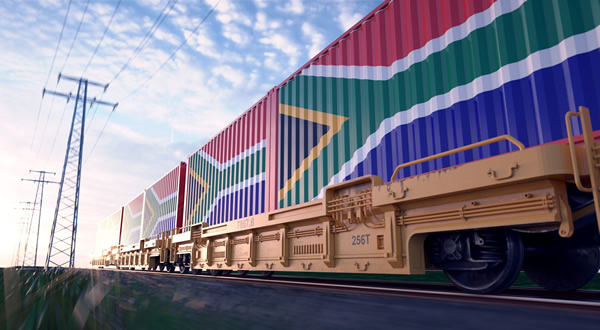
Posted: 04 August 2025
*Roodt Warns of Economic Fallout from US Duties
The Southern Africa Stainless Steel Development Association (Sassda) has raised concern over new trade headwinds following the United States imposition of an average 30% tariff on South African stainless steel exports. The issue was the focal point of Sassda’s latest 60 Minutes with Stainless webinar, which featured renowned economist Dawie Roodt as the keynote speaker.
Roodt cautioned that tariffs, regardless of their framing, are “nothing more than taxes,” and that they ultimately burden the consumer while often distorting local markets. “There’s no such thing as a tariff that’s paid by the exporter,” said Roodt. “Tariffs raise local prices. The cost is passed on to consumers, and any short-term benefit to local producers comes at the expense of overall economic efficiency.”
He noted that while protective tariffs are often implemented in the name of defending domestic industries, the long-term effect is usually reduced competitiveness and slower innovation. “The data is clear. Free markets, when left to operate with fair rules, deliver better outcomes.”
US Duties: Political Leverage or Economic Strategy?
The United States’ tariff hike which range from 0% on some goods to 50% on others has been justified by US President Donald Trump as a response to America’s growing trade deficit. But Roodt argued that the rationale is more political than economic.
“This isn’t about South African exporters threatening American industry,” Roodt said. “It’s about using trade as leverage to pressure South Africa over issues like expropriation legislation and foreign policy alignment.”
He warned that if South Africa does not neutralise its political positioning, particularly on global alliances and local economic policies, more aggressive measures could follow. “Tariffs are only one stick. The US has many others.”
Policy Weaknesses at Home
Roodt also highlighted the persistent structural challenges in South Africa’s economy, including slow growth, high unemployment, and low investor confidence, driven by poor policy, governance failures, and institutional decline.
He pointed to the need for South Africa to position itself as a politically neutral, economically reliable trading partner and to abandon “self-sabotaging” legislative measures that alienate potential allies.
From Manufacturing to Services: Adapting to a New Economy
Global trends, Roodt noted, are moving sharply toward services and technology. He urged South African manufacturers, including those in stainless steel, to shift their business models in response.
“Modern manufacturing is no longer just about producing goods. It’s about integrating skills, services, and technology into the production process. Fabricators need to think like software companies.”
He added that industries failing to innovate and adapt will face shrinking margins as global oversupply, automation, and falling commodity prices continue to compress profitability.
Regional Opportunity, Institutional Hurdles
While the African Continental Free Trade Area (AfCFTA) presents a long-term opportunity for intra-African trade, Roodt pointed out that infrastructure, skills, and weak institutions remain major barriers to integration.
“Africa has the demographic dividend and raw potential. But until we fix basic governance issues, property rights, contract enforcement, and cross-border infrastructure, we won’t unlock it.”
He stressed that countries like South Africa, with relatively advanced industrial bases, have the opportunity to lead but only if they maintain neutrality, competitiveness, and sound governance.
Sassda Survey Results: Industry Rejects Blanket Tariffs, Supports Targeted Measures
Sassda also presented results from a recent member survey on tariffs, which reflected nuanced sentiment across the sector.
Key findings include:
- More than 70% of respondents rejected a blanket tariff on all imported stainless steel, citing concerns over price increases and restricted competition.
- Support grew when the idea of targeted tariffs, focusing on specific countries accused of dumping or exporting substandard products—was introduced.
- Around 80% of members import some or most of their stainless steel, indicating high exposure to global market dynamics.
- The survey sample represented the full stainless steel value chain: from primary producers (including local mills), to distributors, fabricators, and service providers.
- Respondents were evenly split between small, medium, and large enterprises, enhancing the representativeness of the findings.
Sassda Executive Director Michel Basson said the results will inform a more focused engagement with government on trade policy. “Our members support a fair and rules-based trading environment. We will continue advocating for sector-specific protections only where justified, and where local capacity exists to meet demand without sacrificing quality or price competitiveness.”
Basson added that Sassda would explore “targeted sectoral strategies,” particularly in areas like hollowware and welded tube, where local capacity is currently underutilised due to price-driven imports.
To watch the webinar click here
To read more click here: https://businesstech.co.za/news/government/833769/dawie-roodts-message-to-south-africans-about-the-united-states-tariffs/

